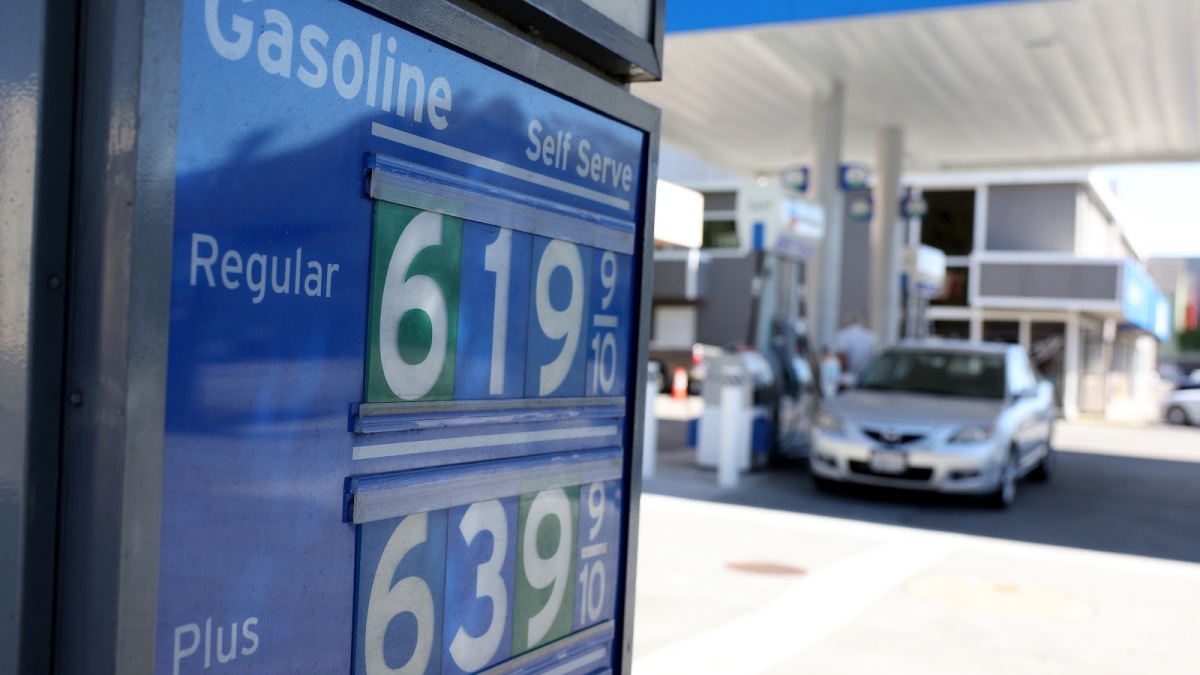The truth is that a basic economic reality—scarcity—cannot be resolved by Gavin Newsom's Division of Petroleum Market Oversight.
Last week, Governor Gavin Newsom (D-CA) boasted on Twitter about California's "first-in-the-nation" anti-gas price-gouging statute intended to stop oil firms from overcharging customers.
“A NEW independent watchdog — The Division of Petroleum Market Oversight — will monitor the industry to help ensure you’re not being ripped off,” Newsom tweeted. “Time to hold oil companies accountable.”
CA’s first-in-the-nation law to stop oil companies from inflating gas prices takes effect TODAY.
— Gavin Newsom (@GavinNewsom) June 26, 2023
A NEW independent watchdog--The Division of Petroleum Market Oversight--will monitor the industry to help ensure you’re not being ripped off.
Time to hold oil companies accountable.
Refineries must submit daily reports to the petroleum oversight division under the law, which was signed into law in March and took effect on Monday. The legislation's goal is to protect consumers by exposing price manipulation so that Californians aren't at the mercy of Big Oil's avaricious whims, in Newsom's words.
Since California has the highest gas prices in the nation, $1.08 more than the national average, according to Jamie Court, head of Consumer Watchdog, the notion that greedy oil firms are defrauding customers is appealing.
Contrary to popular belief, there are other reasons for California's high gas costs besides "price gouging."

First off, according to the Energy Information Administration, Californians pay 83.5 cents in taxes and fees for each gallon of gasoline they purchase, more than any other state except Illinois (85.8 cents per gallon).
Californians pay significantly more for gas than the majority of other Americans for this reason alone, but it's not the only one.
Due to its high taxes and regulations, California has some of the most expensive business costs in the country. As a result, firms are leaving the state in "unprecedented numbers," according to a 2022 Hoover Institution report.
The issue of refineries is another.
Gas prices are significantly influenced by refineries' proximity, and California has been losing them for years. Several have closed under Newsom's leadership, who has all but declared war on fossil fuels with his proposals to outlaw gas-powered cars and stop drilling in the Golden State.
After recent closures, California only has 14 operational refineries left, according to Wayne Winegarden, a senior scholar at the Pacific Research Institute. This includes a refinery in Martinez that will begin producing renewable fuels in 2021.
As a result, the proportion of oil processed in California has been declining for decades. 17.4% of the oil refined in the United States in 1984 was produced in California. By 1999, it had decreased to 14.5%, and as of 2023, it is 10.9%.
This law will deter production, according to Winegarden.
Although many people may find Newsom's rhetoric on price gouging convincing—including the Californian local media, which ran wild with the story—it fails Econ 101.
Gas prices in California are influenced by supply and demand, just like anywhere else. Additionally, even though customers find high prices bothersome, they are crucial market indicators. High costs act as a warning to consumers that an item is in short supply and should be saved. High prices indicate to producers the possibility of profit, which promotes production and investment.
Even many of his Democratic colleagues appear to grasp that Newsom stands to deter investment and production by threatening to choke off companies' earnings.
I attempt to look for "what the hell are the unintended consequences?" Democratic state senator from California Bill Dodd said this about the bill in February.
The Division of Petroleum Market Oversight can't change a basic economic fact called scarcity, the fact of the matter being.
The economist Thomas Sowell once said, "The first lesson of economics is scarcity: There is never enough of anything to fully satisfy all those who want it." He said, "The first lesson of politics is to ignore the first lesson of economics."
We navigate scarcity through prices. The 1970s gas lines were a result of President Richard Nixon's market intervention, and Newsom's oversight division is neither aware of the "proper" profit margin for refineries nor the "proper" price for gasoline. Nixon passed his pricing restrictions despite knowing they wouldn't work, as evidenced by audio recordings, because he saw them as politically advantageous.
It might be politically advantageous for Newsom to blame "greedy" oil companies, but controlling profit won't result in reduced pricing. Additionally, it ignores a basic fact.
The average profit margin of retail gas stations that year was roughly 10 times lower than the 54 cents the state of California kept from each gallon of gasoline sold in the Golden State in 2022. This proves that lawmakers like Newsom, not gas stations or oil firms, are "gouging" consumers.


























